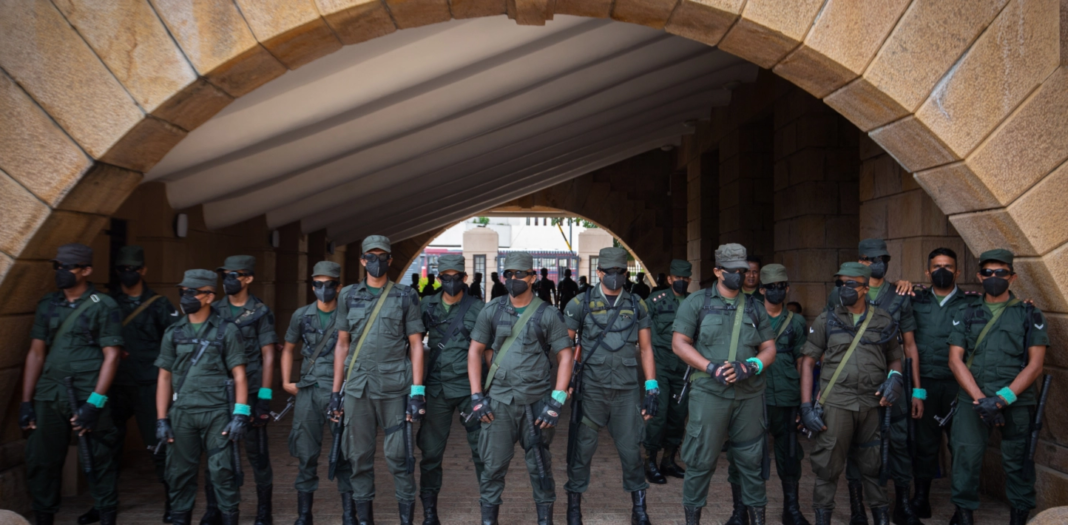Protests and public gatherings in the areas declared as High Security Zones are banned while vehicle parking won’t be allowed in the vicinity of any of the designated locations.
(PTI) Sri Lankan President Ranil Wickremesinghe on Friday declared several key locations in Colombo, including Parliament, Supreme Court complex and the President’s Secretariat among others, as high security zones, banning any kind of protest or agitation in premises near to it.
The move, which are restrictions to those of during Liberation Tigers of Tamil Eelam (LTTE) days that saw suicide explosions at such key locations, prevents even parking of cars in any of the areas near to the premises of the key government buildings.
Significantly some of the designated locations were the sites for large public agitations which demanded the resignation of the then President Gotabaya Rajapaksa between early April to mid July as civilians across the island nation agitated against Rajapaksha family for handling of Sri Lanka’s economic crisis, which it even now is unable to recover from.
In an extraordinary gazette notification issued on Friday, the President’s Secretariat has declared key government installation localities as high security zones.
Areas around Parliament, Supreme Court Complex, High Court Complex in Colombo, Magistrate Court Complex in Colombo and Attorney General’s Department, Presidential Secretariat, President’s House, Sri Lanka Navy Headquarters and Police Headquarters have been declared as High Security Zones, the notification said.
The zone also includes the Ministry of Defence and Sri Lanka Army headquarters located near parliament, the Sri Lanka Air Force headquarters, Prime Minister’s Office, the Temple Trees prime minister’s residence and the Official Residences of the Secretary to the Ministry of Defence and the Commanders of the Tri Forces, it said.
According to the notification, protests and public gatherings in the areas declared as High Security Zones are banned while vehicle parking won’t be allowed in the vicinity of any of the designated locations.
The move was a return to the days of the LTTE’s separatist campaign prior to 2009 when the separatist group carried out a series of suicide explosions at key installations as part of their campaign.
Anti-government protesters are now getting arrested for unlawful entry to these key areas and the government’s use of the controversial Prevention of Terrorism Act to keep under detention of some of them has under criticism from international rights groups.
